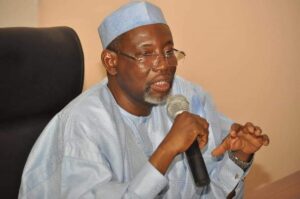Brain Drain: Exodus of Nigerian health professionals now an emergency
The migration of medical personnel from Nigeria has expanded in volume to assume a dimension of exodus. Several factors have been attributed to the subject. Despite the problem of the massive migration posing threats to the health sector in Nigeria, efforts by the government to address the trend seem not to be drastic enough to manage the situation.
Some measures put in place by the government apparently are either inadequate or better still counterproductive. Recently, a motion moved at the parliament seeking to impose a number of years for graduates of medicine to serve in the Country before having a permit to travel abroad was greeted with resistance. There have been a plethora of arguments coming forth to counter the proposed law. Experts have argued that rather than reactive legislation, efforts should rationally be deployed to address the ground factors informing the exodus of medical practitioners out of the Country.
While a number of factors have been identified, issues relating to poor working conditions, particularly regarding the welfare and remuneration of health workers have been resounding. It has been argued that health practitioners in the country would largely have little or no reason to desert the country if their welfare is well catered for. Speaking on this regard, the Vice Chancellor of the newly established University of Ilesa in Osun State, Prof. Taiwo Asaolu, said only improved remuneration and welfare for medical personnel will stop their mass emigration abroad.
The VC disagreed with the school of thought that medical students should be compelled to undertake work in the country for a number of years post-graduation before they can move abroad. Asaolu, who spoke on the sidelines of the inauguration of a hostel for nursing students at the University of Ilesa recently, advised the government to fix the economy and make working in the country enticing to school leavers.
”If we had increased the cost of training for these medical students, some of them would still have paid. So, it is convenient for the government to pay, and that is why they are paying. I am not into bonding them.
“Most of them would not have left the country if the labour market was right. If they are paid the right wages, they won’t leave. If the cost of living is okay, they will not leave. We just have to get it right.
“It is normal for someone to gravitate towards where his lots would be bettered. The government should make the economy okay and provide basic amenities,” he had said.
The exodus of health practitioners out of the Country is posing a capital threat to health management in the Country. The deficit in the ratio of citizens to health professionals in the Country has become alarming, larging falling short of recommended standards. Reports have repeatedly shown that for every 10,000 persons in Nigeria, there are only about four doctors available to treat or attend to them. This is a threat to health management for a growing population.
It is pertinent for the Government at all levels to rise to the necessity to address the root causes of the subject. It is becoming a deep challenge that the rising population in the Country is exposed to rising deficits of health professionals. The resultant impacts pose risk to national safety and development. The direct and indirect impacts pose a huge threat to economic development. The Government must take the need to address the subject as an emergency.




